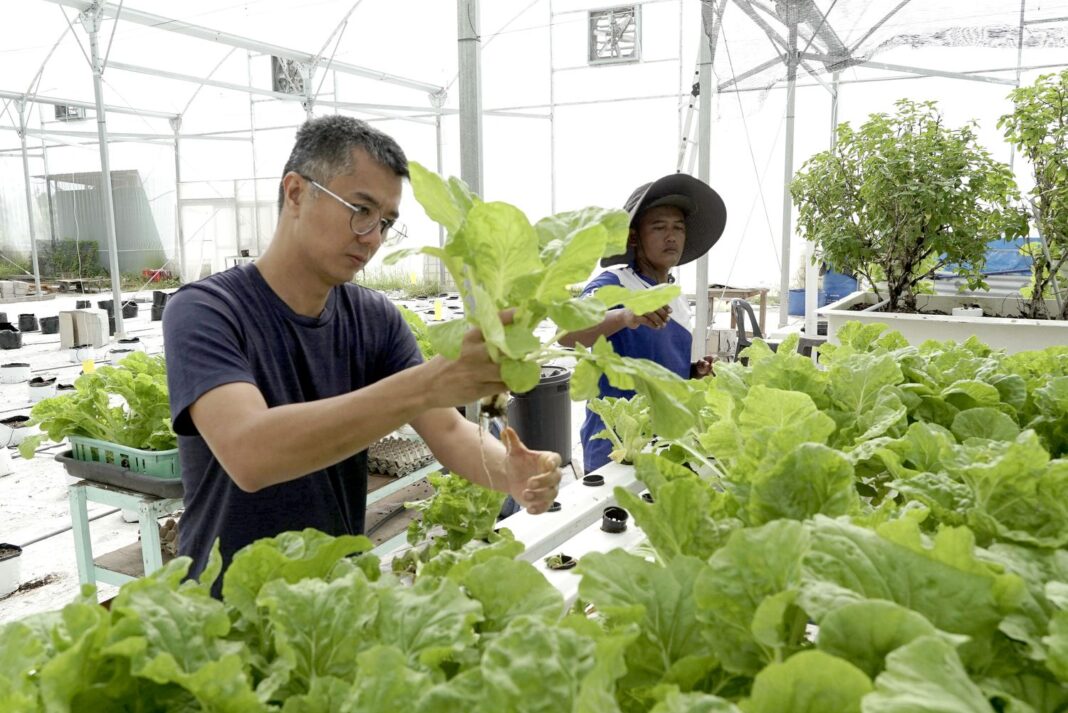Neither a traditional nor generational farmer, Chern Y. Loo’s passion and belief in sustainable and organic-based farming meant that just over a year after beginning earthworks at Springhill Development Enterprise’s first commercial-scale farm in KKP Tungku, he was already able to harvest more than 700 kilograms of produce monthly.
But his relatively high-yielding, unconventional setup, which uses no government water or electricity, has been a decade in the making.
Starting in his backyard in 2011, Chern and his family have been trialing organic-based, integrated farming systems, growing fish and plants at the same time—a method called aquaponics—while also leveraging solar power generation in a practice known as agrivoltaics.
After overcoming the considerable technical challenges and making substantial personal investments to scale a backyard operation onto a four-hectare plot, another concern loomed—would traditional retail stores be willing to pay a fair price for Springhill’s organic-based, sustainable produce?
Organic produce has a growing share of customers in certain parts of the world. It’s pricier—in simple terms—because it’s costlier to produce. Pest and disease control must be managed through natural means, which often require more time and effort.
Specifically for Springhill; solar systems, rainwater harvesting, and other circular economy techniques such as composting and biochar sequestration contribute to the additional investment.
However, the reward for growing without petrochemical fertilizers and pesticides is clear to Chern, who believes it is indisputably healthier for individuals and ultimately better for the environment.
“Organic-based produce is still a new market in Brunei—and the market hasn’t warmed up to the idea of selling at a fair price that would allow us to cover our costs (including typical overheads like wastage, shelf space, rent, packing and transportation),” said Chern.
“So that’s when I reached out to Darussalam Enterprise (DARe).”
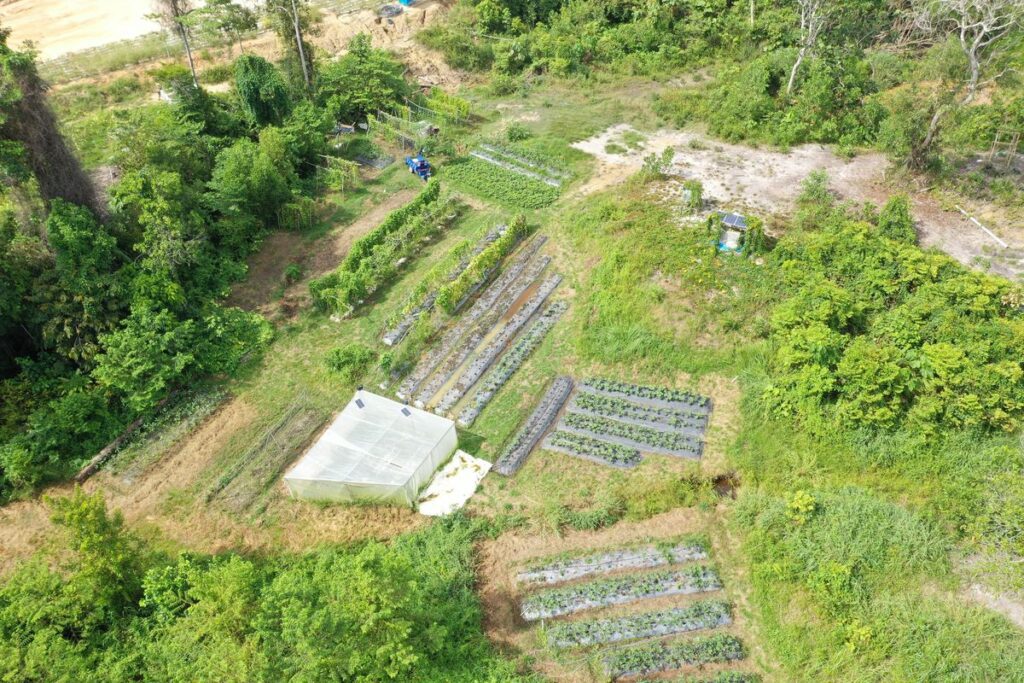


Developing Brunei’s first AI-powered farmer’s marketplace
As a teenager with a keen interest in using artificial intelligence tools for automation, Rifa’ie Ahmad Schufin approached DARe to enroll in its Micro Bootcamp while he was still a student at Jerudong International School a few years ago.
Initially, he explored starting a marketing agency, but with the market for such services already well established, he eventually developed a chatbot using an online customer relationship management platform that would automate conversations for businesses engaging with customers.
Chern, too, was a bootcamp participant, so when Rifa’ie heard Chern’s call for help through DARe’s ecosystem, he quickly pitched his chatbot service to automate an online farmers’ market through WhatsApp, enabling Springhill to sell directly to customers.
Farm-to-people platforms that reduce middlemen and traditional distributors aren’t new. In China, apps like Meicai and WeChat have allowed farms to connect directly with their intended customers—whether individuals or eateries.
However, Bruneian farms don’t have a comparable platform, and the cost of developing individual apps for their own use can easily run into the tens of thousands—a risky endeavour considering the uncertainty of whether users are willing to download yet another app specifically for ordering fresh produce.
An automated system that can be simply deployed on Brunei’s most popular social and messaging apps—WhatsApp or Instagram—called “AI on Socials” is significantly cheaper, lowering the barrier for farms to sell fresh produce, which already have to survive on thinner margins.
“Rif was only 18 when he came to me with Orca AI (his startup),” said Chern, who was impressed and eventually decided to partner with Rifa’ie to become the CEO of Orca, while Rifa’ie continues as the CTO, balancing his university studies in Malaysia.
“He was very committed to developing a working solution for Springhill. The first version was a complete dud, and we had to rework it from scratch.
“But by October 2023, we were able to deploy the chatbot. Within 56 days of release, we engaged with 100 new users, achieving 254% monthly growth. Now the majority of our produce is sold through this platform.”
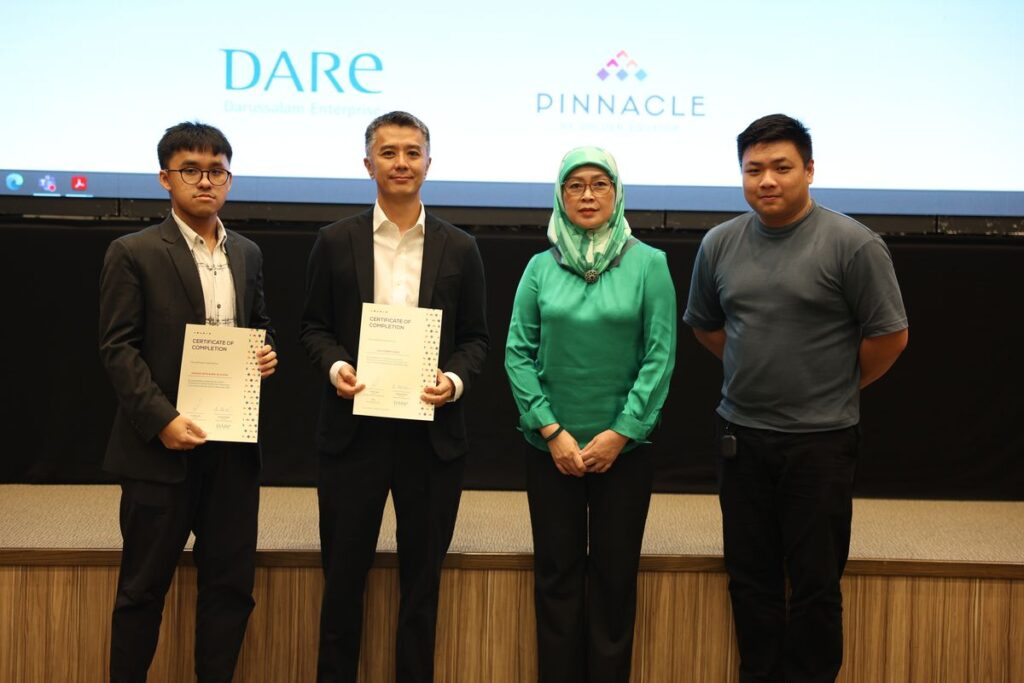
Today, customers messaging Springhill on WhatsApp at +673 8348885 are greeted by Cora, a virtual chatbot assistant. Customers can inquire about the weekly harvest and place preorders, which are harvested and delivered the same day, with no delivery charges for orders above $20.
Cora frees up to 85% of the interaction typically required by dedicated sales or administrative staff, up to order confirmation and payment.
Several other local farms have joined Springhill’s online marketplace, which has grown in popularity among expatriates who seek out “farm-to-table” produce.
“The prices on the online marketplace are very similar to those in supermarkets—even though they are organic-based and sustainably grown,” Chern said.
“Through this model, customers get low prices, fresher produce, but we farmers are still able to make a decent profit. We’ve also introduced a monthly subscription for produce.
“This means we can now grow and harvest more precisely based on demand, reducing the 10-30% wastage seen in the standard retail model. Now that we have solved distribution and sales issues, we can focus on further increasing production.”
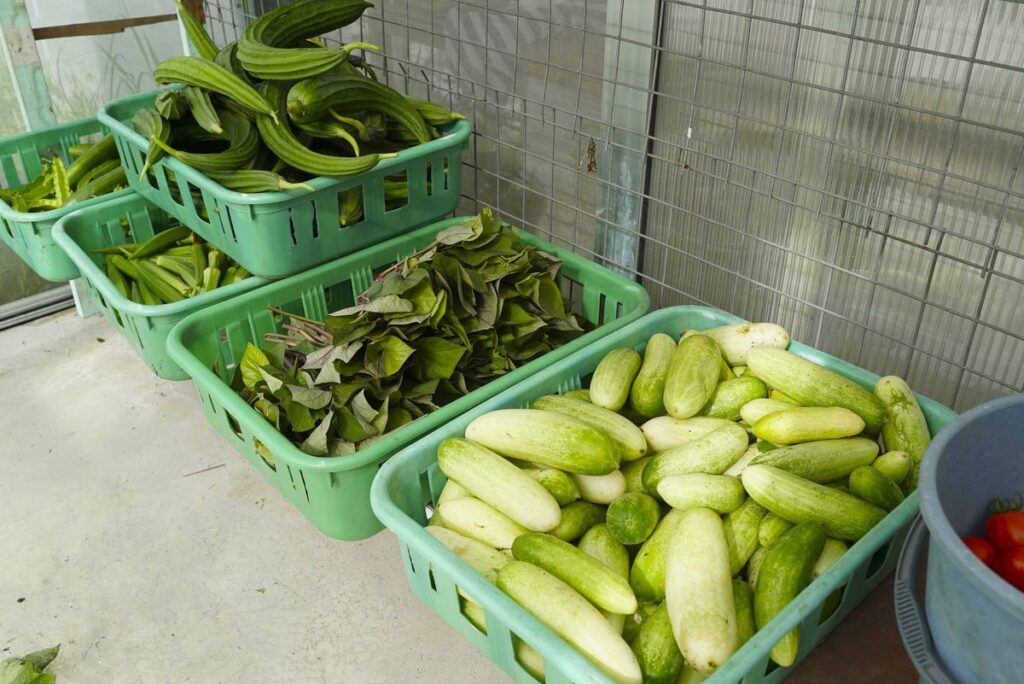
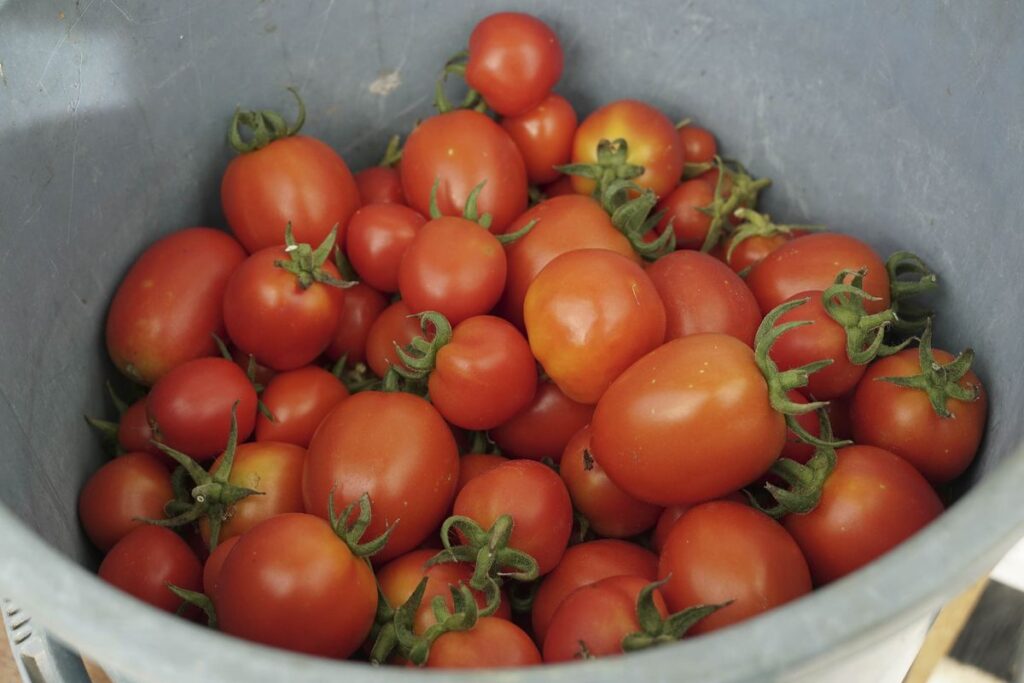
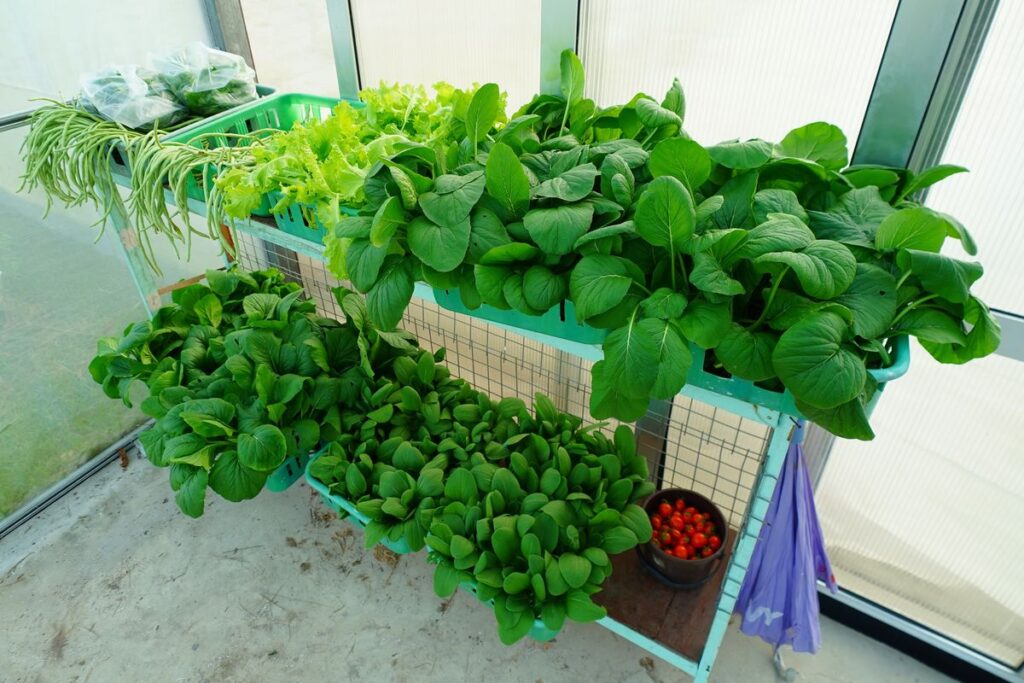
Behind the journey of an architect turned farmer
The chatbot was a breakthrough for Springhill, decentralizing its model and enabling it to begin covering its operational costs. However the discussion of recouping the farm’s initial outlay or Chern’s total investment since his backyard days is another subject entirely.
For Chern, an architectural designer turned farmer, Springhill’s profitability is more important because it means the successful championing of the cause they represent, rather than purely a pursuit for the greatest possible financial return.
Born into an entrepreneurial family, Chern’s father, Loo Kuan Look, is the founder of BIT Computer, a company known to most as an affordable electronics accessories shop – but was also the vendor behind several pioneering solar projects with the government, including the installation of solar panels across Bangar in Temburong. His uncle, Philip Loo, runs a successful aquaponics business in Penang, Malaysia, called HAVVA Agrotech.
Chern’s journey from designing high-end residential and commercial spaces to sustainable farms began in 2014 after his child was diagnosed with Kawasaki disease, a condition characterized by an abnormal immune response to an infection that leads to inflammation of the blood vessels.
Medical experts cannot definitively say what causes the infection—but it’s accepted that environmental factors can play a role in triggering the immune response.
“The prognosis was that my child would not live to adulthood. This was quite a stressful period for us as my child had to go through various medical procedures and daily blood clotting monitoring to dose medicine,” recalls Chern.
“Eventually, we switched my child’s diet from store-bought packaged and processed food to home-cooked, home-grown, plant-based foods. After a year of this, the aneurysm disappeared and my child is now healthy and normal.”
On any of the given tours of Springhill today—whether by students, businesspeople, or stakeholders—Chern remains open and firm about his opposition to the predominant practices of industrial, monocultural farming—large-scale agricultural practices favoring a single product grown over vast areas, leading to reduced biodiversity and increased reliance on chemical inputs like fertilizers and pesticides.

Using the specific example of minimum residue limits—the highest level of pesticide residue legally permitted in or on food or animal feed—Chern argues that the average person is not aware of these standards and the nuances of how MRLs can vary significantly between countries despite health-risk assessments being scientifically based.
“There is a general trend in developed societies to reduce consumption of processed food in favour of real, whole food—but even going to the store, are we aware of how our food is grown?
“This is why we are trying to promote a greater understanding of where our food comes from—through talks, farm tours, to see how food can be grown sustainably, through ecological means rather than chemical.
“Similar to today, how we as a society are more aware of the risks of smoking than we were several decades ago, I believe and hope the same transformation will happen with food.”
Given his personal experience, Chern’s position is understandable—and with the organic market being one of the fastest-growing agricultural sectors globally, his efforts to develop this nascent space in Brunei as a viable alternative could be on the cusp of wider recognition.
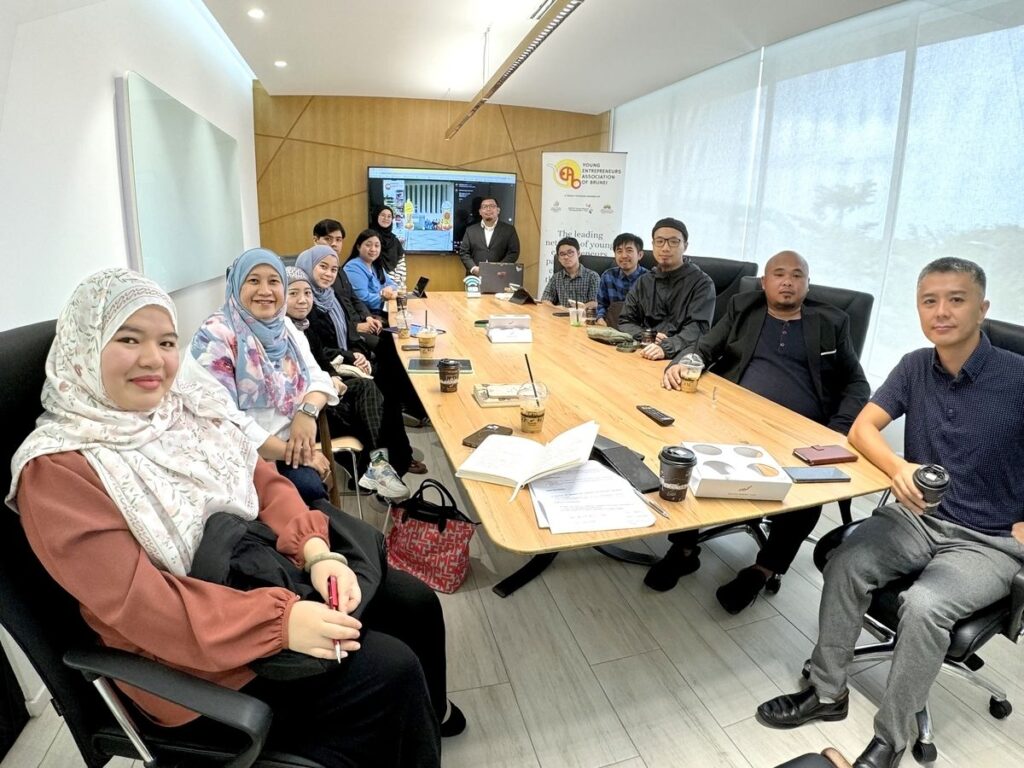
This feature is part of a special edition of Baiduri Bank’s Entrepreneur Spotlight, in collaboration with DARe, to showcase the stories of local businesses that are part of both organisations’ ecosystems.
Springhill is a graduate of DARe’s Micro Bootcamp and Accelerate programme, a Co-Matching Grant recipient, and is now under Brunei Innovation Lab. Chern is also a Business Banking client with Baiduri and a member of the Baiduri Enterprise Hub.


